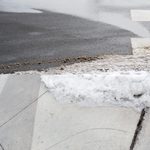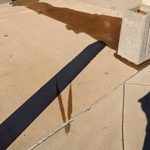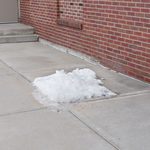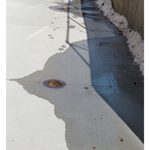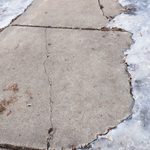
The development of Walking grew out of two parts: the process and the findings of this process.
After four years, my movement across this campus became repetitive such that each walk echoed a walk from an earlier time. I became intrigued with how we gain access to past, mundane, or forgotten memories and thoughts when we remain in or return to those relevant spaces. By anchoring my arts practice to the act of walking, I found a way to carve out the time to walk for the sake of remembering and reflecting. I hoped that if I spent enough time understanding the effects of the space while I was here, perhaps it wouldn’t be such a loss once I left. While the act of walking fulfilled a desire to contemplate the space I was about to leave, the focus of my series was not so literal.
In these acts of walking, I began to reflect on the negotiations of space–how we change ourselves to fit into the environment and how we carve out room for ourselves in these spaces. This dynamic exists at the personal, cultural, and systemic level, where the act of survival can depend on sacrifices of the self or an unending negotiation between the self and the space. While considering the expansiveness of these contentions, I also began to see these interactions in the most mundane moments from my walks. Within the banal act of clearing snow from sidewalks and pathways, I saw continuous negotiations of space between human activity and snowfall. I also saw moments of perseverance from the snow in the face of salt, sun, and shoveling. Though fleeting or only residual traces, these moments were intriguing for their subversions and disruptions of agendas greater than themselves. This series grew into a documentation of these mundane moments of subversive survivals.
During the making of this series I did not know how soon our dislocation from Carleton would come, nor how collective this dislocation would end up being. It is an unsettling comfort to have been able to contemplate themes of dislocation, mundane acts, and perseverance, before they were so central to so much of the world. (View Mika’s website)
— Mika Takamori ’20
